My parents were buried at Arlington National Cemetery this past October. They had, in fact, both died some time earlier, but the family member who had volunteered to oversee arranging the interment delayed doing that for some time. Eventually he died himself, and my daughter took over. Burial at Arlington is cut and dried: you have a right to it or you don’t, but arranging it can take some time. Sometimes burial is limited to the columbarium there (a wall with pigeonholes), but my father was entitled to burial on the grounds.
My father, born in 1922, was a child of immigrants. His father had arrived in the United States, alone, at age fourteen. We are uncertain as to what his name was, or how it was spelled; changes were apparently made at the immigration point. My grandfather and his wife worked hard all their lives, and my grandfather died too young of damage done by working in jobs that were, by today’s standards, environmentally hazardous. They were extremely poor.
My father, who used to throw his lunch sandwiches over a fence because he was embarrassed not to have the same sort as the “American” kids, was, however, an extremely gifted athlete (basketball and football) and was, as well, smart. He was offered full scholarships by thirty-five colleges, including the University of Pennsylvania and Princeton. He had no guidance except from his coach (who had bought him a suit so that he could attend a recognition ceremony), so he chose the school with the best reputation for sports. At the University of West Virginia he was on a basketball team that, at Madison Square garden, won a national championship in what was the predecessor to the NCAA. There is a record of this online, with a photograph of the team.
He enlisted during World War II, and was chosen for officer candidate school. He did his training in South Carolina, where he met and married my mother, a descendant of the Scottish diaspora that populated a lot of the Southeast in the 18th century; it is unlikely that they would ever have met otherwise. My father was very good at math, and so he was trained as a navigator and was eventually sent to England, where he joined a crew flying bombers from there to Germany. He was part of the 303rd bomber group, Hell’s Angels.
Life expectancy for bomber crews was short. My father didn’t talk about this period in his life much, and most of what I know is from looking things up myself. The chance of returning from every mission was less than fifty percent. Very few crews survived more than eleven missions, and twenty-five missions was considered a complete tour of duty. My father’s crew, flying a plane named ‘The 8 Ball’ out of Molesworth, beat the odds and re-upped, flying more than thirty-five missions — I don’t know the exact number. In the early days the fighter planes that guarded the bombers were limited in range because of fuel capacity, so they were able to go only so far before they were forced to turn back. At that point the bombers were on their own, and the Luftwaffe quickly learned to wait for that moment before attacking. So many bombers were lost that, at the end of 1943, flights were made only at night in order to present as less visible targets. I can only imagine the terror of this. My father did say once that a bombardier on his plane was shot and killed through the open bomb bay. The average age of bomber crews was twenty-five. My father was twenty-one years old.
I should also say that my father was a lucky man, who always got a parking spot in front of wherever we were going the day after Thanksgiving, and who often got winning (small) lottery tickets. I think his luckiness rubbed off; it is amazing that he and his crew survived so many missions. I still have his silk pocket handkerchief, printed with a map, that was given to airmen in case they needed to bail out. Many of those who did, if they survived, spent the rest of the war in prisoner of war camps.
After the war, his athletic career in the past, he went to Clemson University on the G.I. Bill, studying engineering. He graduated first in his class, and also graduated first in his class when he earned his master’s degree in aeronautical engineering from the University of Michigan. I have newspaper articles confirming these. I remember my mother, who worked nights at a Kaiser aluminum plant near Ann Arbor, baking things to keep him going while he was studying. She was a farmer’s daughter who also earned a master’s degree, summa cum laude, and was an elementary school teacher for many years, and through several military moves.
My father stayed with the Air Force after graduation — happy childhood years for me and my brother — and was eventually sent to Command and Staff school in Montgomery, Alabama. He left the military while we were there, I think because he wanted a chance to earn more money. He stayed in the Reserve, though, eventually rising to full Colonel rank.
I won’t describe his work career post-military. But I would like to say, as this year’s Memorial Day approaches, that we believe believe my father illustrates the best of America, a child of immigrants who worked hard, who was brave, who did his best for his country and his family. He was proud that he had the right to be buried at Arlington, as was my mother. I think of my parents every day.
Pamela Osborne lives in Salisbury.

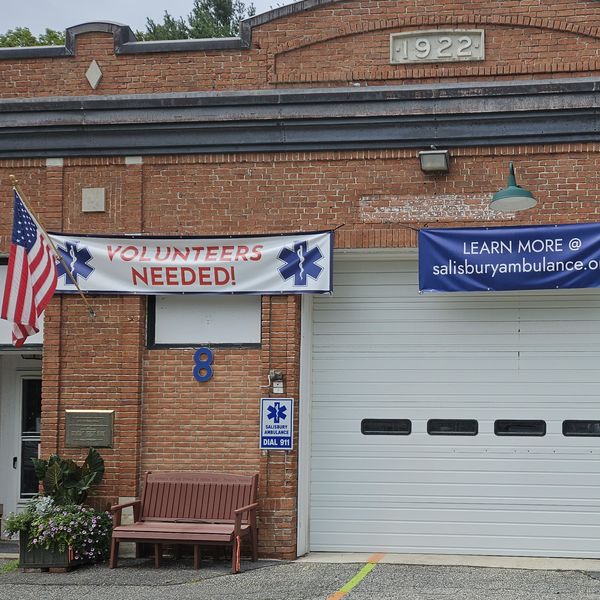
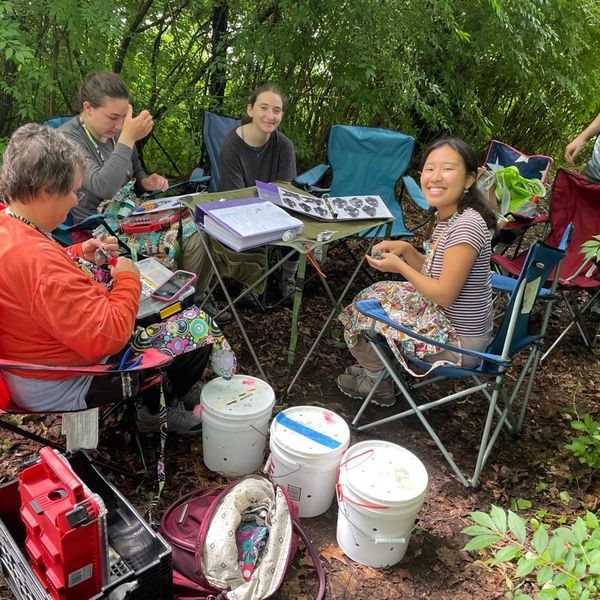
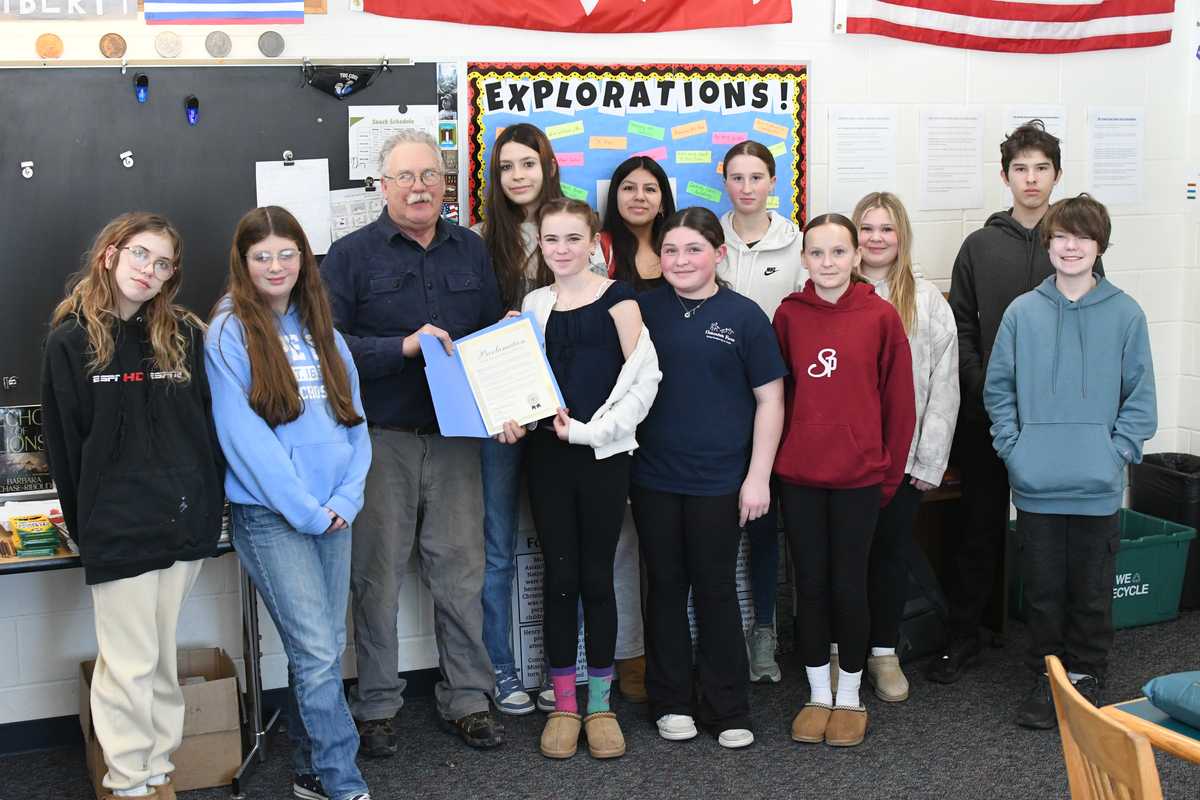
 First Selectman Gordon Ridgway learns from 7th graders at Cornwall Consolidated School about the story of Robin Starr, a man who bought his freedom after serving in the Revolutionary War.Riley Klein
First Selectman Gordon Ridgway learns from 7th graders at Cornwall Consolidated School about the story of Robin Starr, a man who bought his freedom after serving in the Revolutionary War.Riley Klein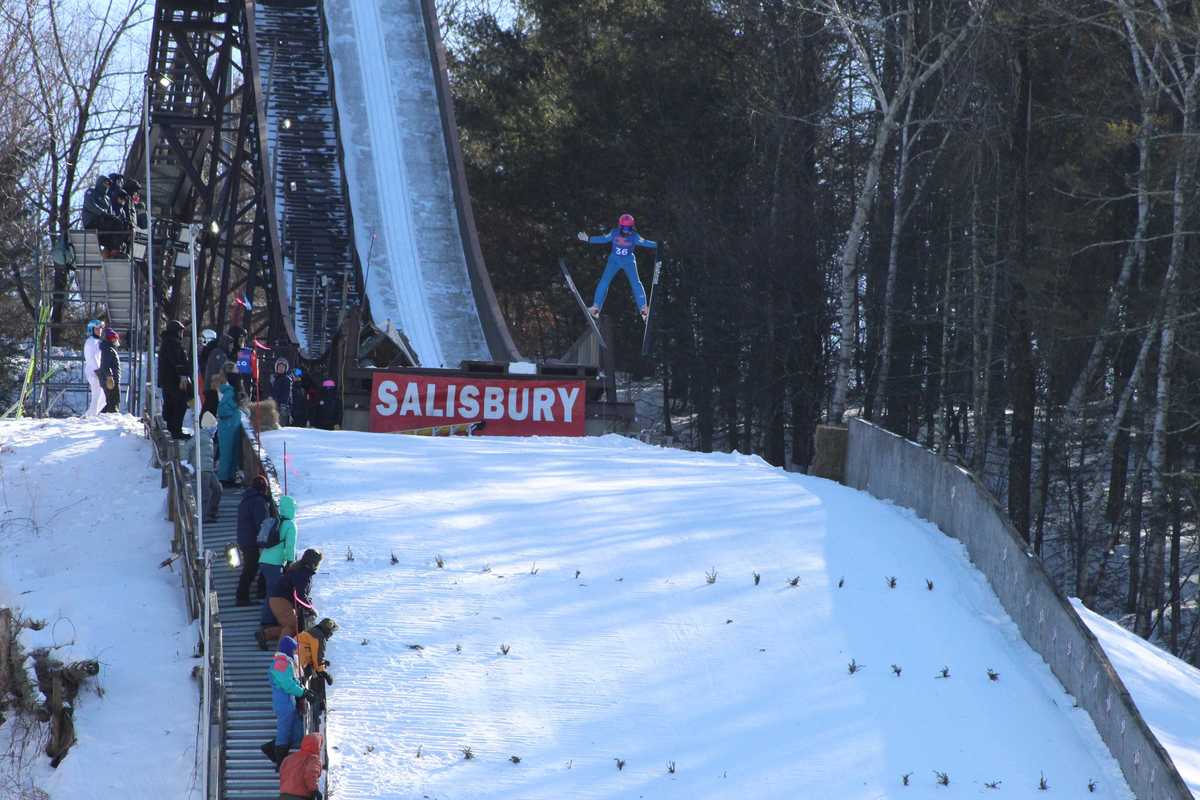
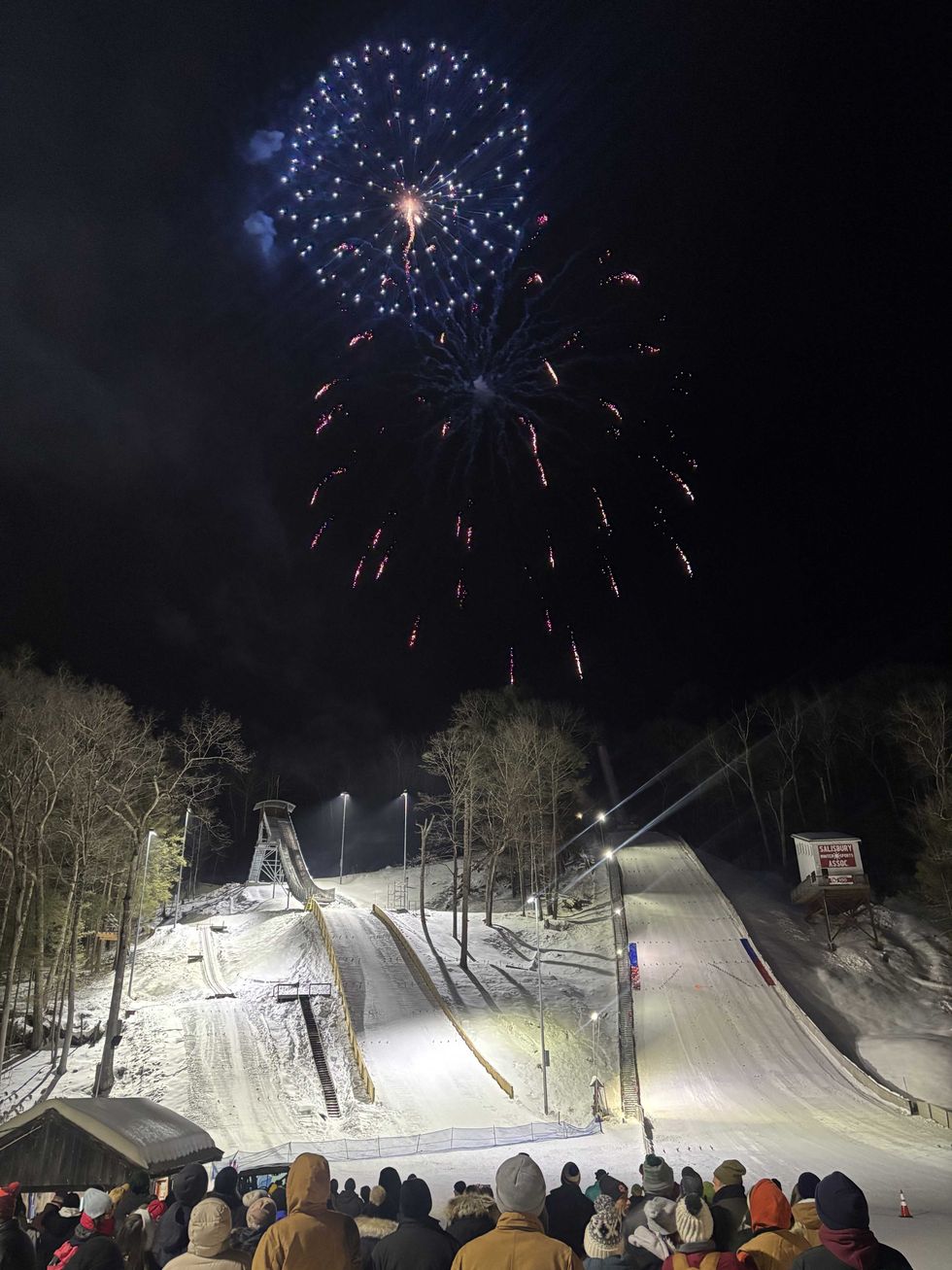 Fireworks over Satre Hill Friday, Feb. 6.Alec Linden
Fireworks over Satre Hill Friday, Feb. 6.Alec Linden
 Salisbury Central School with SWSA jumpers.Dan Hubbard
Salisbury Central School with SWSA jumpers.Dan Hubbard  Willie Halloran of SWSA, Coach Seth Gardner, and ski jumpers Oona Mascavage and Camden Hubbard giving a history of Salisbury ski jumping and equipment demonstration.C Tripler
Willie Halloran of SWSA, Coach Seth Gardner, and ski jumpers Oona Mascavage and Camden Hubbard giving a history of Salisbury ski jumping and equipment demonstration.C Tripler The jumps at Satre Hill are groomed and ready for launch of the 100th annual Jumpfest Feb. 6 to 8.Photo by Lans Christensen
The jumps at Satre Hill are groomed and ready for launch of the 100th annual Jumpfest Feb. 6 to 8.Photo by Lans Christensen









Remembering father on Memorial Day
Burial at Arlington Cemetery for member of the 303rd bomber group, Hell’s Angels.